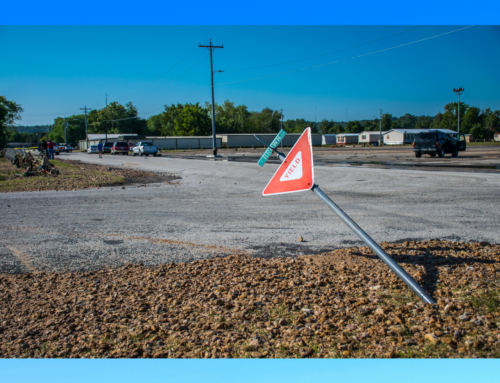 I appreciated KD’s blog and story (August 2) and perspective on enabling, and Marty’s response to the blog on Facebook is also useful. The whole idea of enabling in poverty reduction is so complex that it warrants ongoing conversation if it is going to be addressed effectively individually or systemically. I know that it comes up consistently at presentations I do in my schools or at the community level. Questions along the line of “How do we help without accidentally contributing to maintaining the cycle?” are more than common. Often they take a more direct tone, “How can we get people to use the things we give them the way we intend?”
I appreciated KD’s blog and story (August 2) and perspective on enabling, and Marty’s response to the blog on Facebook is also useful. The whole idea of enabling in poverty reduction is so complex that it warrants ongoing conversation if it is going to be addressed effectively individually or systemically. I know that it comes up consistently at presentations I do in my schools or at the community level. Questions along the line of “How do we help without accidentally contributing to maintaining the cycle?” are more than common. Often they take a more direct tone, “How can we get people to use the things we give them the way we intend?”
As an individual from generational middle class, I understand the desire to give charitably as well as the frustration that comes in seeing charitable giving “misused.” Here are some thoughts that I have about the process.
1) I agree that change does not come about until a person comes to a place where they desire the change. We talk about people “making the argument for change” themselves. Whether those who want to help bring about change do so through negatives (think filling out so many job applications per week in order to maintain benefits), or through positives (free meals, gas money, food banks, etc.), the same thing is true. It is not possible for one person, or to create a set of circumstances, that will force another person to change.
What I think gets missed is that this is true for the enabler as well as for the enabled. Enabling is a dance that requires at least two parties. Accepting that we are talking about a dysfunctional process, both sides need a level of self-examination leading to change if the cycle is going to be broken. Too often it seems that donors get fed up with their donations resulting in no change, so they quit the process. But quitting is not the change that’s needed. The enabler needs to assess:
- Why am I giving?
- What are my expectations of those to whom I give?
- How am I deciding whether those expectations are being met?
- Is it possible that what I am doing and the way I am doing it are contributing to the problem?
What I have experienced and seen in the discussions I have with those who view themselves as serving those in poverty is that far too often, we put strings on our service offerings expecting to be able to pull our offerings back if those being served don’t perform to our expectations. When it doesn’t work out, the expectation for change is on those receiving help, because after all, “we did our part.” I am learning more and more that everyone in the cycle needs to take responsibility for their part in it through honest self-examination.
2) I have really appreciated the concept that I have learned in Framework/Bridges that if a person is given something with no expectations, it creates and/or perpetuates a victim mentality. Over generations, this results in people who lack a sense of effectiveness. I see this mindset often in kids and families I work with in my job as a school psychologist. I think that one principle that could help in this area of giving is to maximize equal exchanges between parties.
Recently, I have been working with a man who is a part of our local initiative. He lost his driver’s license a couple of years ago. He needed to get it back to take advantage of an educational opportunity but is unemployed and did not have the financial resources to pay the associated fines and fees. I had adequate financial resources to pay the fines. I could have come along and offered to pay the fines “because I really want to you be able to take advantage of this opportunity.” “Don’t worry about it,” I would have said, “It’s my privilege to help out.” In fact, that was my tendency. It would have been easy and I would have felt good about helping someone out. But Joe would have had no investment in the process. I would have been contributing to a lifetime of experiences that have led to a mindset of personal ineffectiveness.
Thanks to the new and better mindset I am developing through Framework/Bridges principles, we instead worked out an arrangement. I had the money to pay his fees and fines and he had the time and skills to do some exterior work on my house that I was not going to be able to get to any time soon. We worked out an hourly wage agreement. We both had something the other needed and the exchange was equitable. Joe got his license but contributed effectively and in a real way to his own solution. He has a sense that he has something to give; he has some skin in the game, so to speak, and so has a great deal more invested in his license and the opportunity it will afford him. More than that, Joe and I are developing a deeper relationship of mutual respect.
This is obviously a bigger situation than the five bucks for gas that KD was dealing with. But I wonder if givers were more intentional about giving the receivers not only resources but also the opportunity to be effective; to contribute something real to the process, to also be givers, if it might not reduce enabling effects of some of the giving.
There is a verse in the Bible that I hear quoted in this area (2Thesslonians 3:10); “If a man does not work, he shall not eat.” Like a lot of middle class folks I have heard reference this verse, I interpreted it as referring to the responsibility of the one who eats to earn his food. And there is some truth in that. But I often hear this verse being used as a bit of a club along the lines of the iconic “Hey buddy! Why don’t you get a job?!”
As I grow in my understanding, I am starting to see this verse more as advice to those who really want to help others. Instead of the “Hey buddy!” approach (this is your problem), I hear a voice telling me, “Hey buddy, it is not healthy for people to get something for nothing. It creates helplessness. Instead, find ways to empower those you want to help so that they can begin to believe that what they do is important; so that they can begin to believe in their ability to contribute in a meaningful way to their own needs, to the needs of others, and to the community as a whole.”
A final thought on this. There are programs which involve conditions to receive benefits, but they often seem to be controlled by those who hold the resources. The organization with the resources requires the individual to meet some condition in order to access the resources. I think this can easily lead to hoop jumping while reinforcing a mindset of personal ineffectiveness as well as a power structure that basically says that those who have get to tell those who don’t what to do. While I recognize that what I am talking about will be more difficult, I am looking for mutual agreements where both sides are bringing something to the table. I suppose it’s a bit of a barter system. The key to me is to strive for equal footing because so much of our current system is not naturally inclined toward that!
Jim Ott of Dubuque, Iowa is a school psychologist in eastern Iowa where he has served preschool to 12th-grade students for the past 25 years. He is respected as a great communicator and problem solver, especially in assisting parents, school teachers, and administrators to find common understanding in difficult situations. For the past five years Ott has been a certified trainer for A Framework for Understanding Poverty and Bridges Out of Poverty. He has presented the Framework material to multiple schools in the eastern Iowa area. Jim is active in his home community of Dubuque, promoting the Bridges Out of Poverty concepts through presentations and workshops and facilitating Getting Ahead in a Just-Gettin’-By World groups. Jim’s energy and storytelling have made him a popular, sought after speaker.








